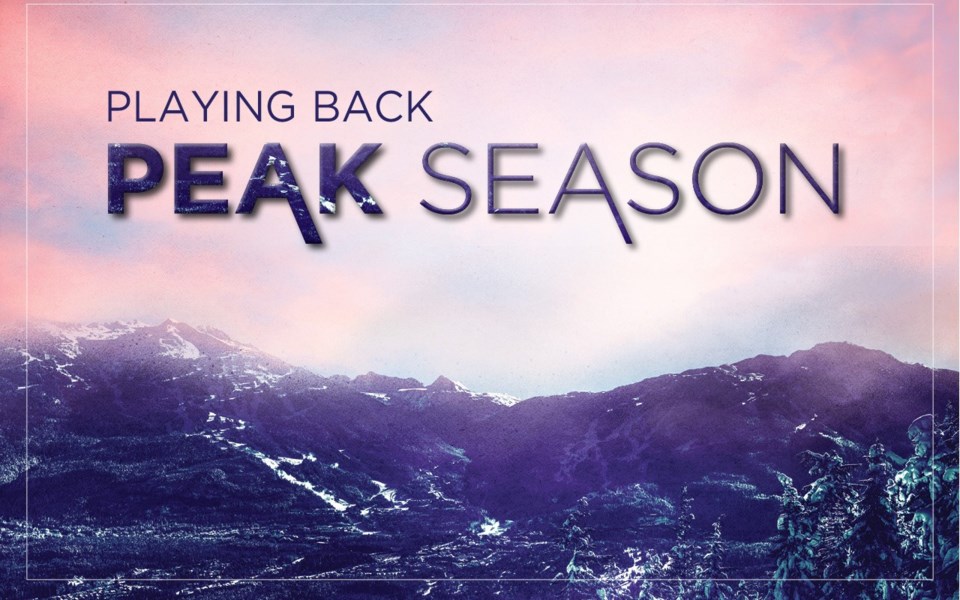
It was October 2009. Donald Trump was only a businessman-turned-reality star, Justin Trudeau was in his first term as a rookie MP, and Jersey Shore was still just a popular summer vacation spot for American East Coasters. Caitlyn Jenner was, at the time, best remembered for being an Olympic gold-medallist rather than Kendall and Kylie's dad.
Speaking of the Olympics, that month saw $600 million worth of improvements to the Sea to Sky Highway wrap up, while Whistler prepared to welcome the world as the Host Mountain Resort for the 2010 Olympic and Paralympic Winter Games in just a few months' time.
But, that October, many people around the world instead welcomed Whistler into their homes through their TV screens, courtesy of a brand-new MTV reality show called Peak Season.
Its tagline? "There are lots of reasons Whistler's known as the No. 1 ski resort in the world, but this story is about none of them. This is about the real Whistler."
The 10-episode "docudrama" series, filmed over three months, followed a group of 20-somethings as they navigated life in Whistler, balancing partying, hook-ups, relationships, tourism jobs, and, of course, shredding.
What resulted wasn't just a Canadian ski town's attempt at recreating The Hills, just with snow, Canadian accents and a couple of Australian cast members. For many in MTV's target age demographic—both across the country and across the pond—Peak Season offered a (heavily edited) look into what life in a resort town was like, without having to leave their parents' basements. For those who already called Whistler home, it was an opportunity to see their community portrayed on the small screen—even if they didn't always agree with that depiction.
Now, a full decade removed from when the world first witnessed Amanda and Dre's tearful late-night argument on the corner of Highway 99 and Village Gate Boulevard, we're taking a look at what kind of legacy Whistler's brief brush with MTV cameras left on the resort and its residents.
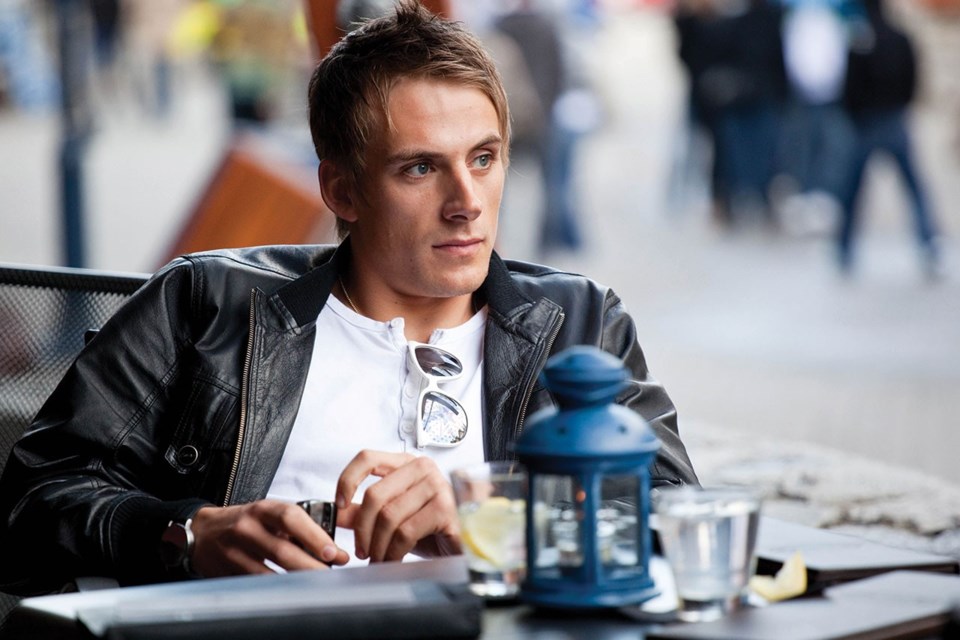
PRE-SEASON
Anyone who has ever ridden a Whistler Blackcomb lift has likely noticed the white nametags resort staff wears on duty. The tags don't just spell out each employee's name, but their hometown as well—something that never failed to pique Vancouverite Grant Fraggalosch's interest while waiting in lift lines during weekend trips to Whistler.
"Oftentimes it was these far-off places—Australia, the U.K., Germany. It just sort of struck my imagination, like 'Wow, I wonder what it's like for a young person to move halfway around the world, end up in this incredible ski resort, and be here for this six-month period,'" he recalls.
"It's much longer than a holiday. It's enough time to start a new job, to start a new relationship, to fall in love with someone. It is a big chunk of life and a lot can happen in that period."
As Fraggalosch, Peak Season's creator and executive producer, explains, that curiosity ultimately became "the crux of the idea" for the reality show—an idea that coincided with both the rise of the "docudrama" genre, best exemplified at the time by MTV's smash hit series, Laguna Beach, and its high-profile spinoff, The Hills, and the launch of the MTV Canada network.
"I thought, they're going to be looking for some Canadian content ... and this docudrama genre really seems to be taking off and working for them. What would be a version of this that could take place in Canada?"
Fraggalosch and production partner Andrea Fehsenfeld's pitch to the network turned out to be exactly what the newly launched MTV Canada was looking for. Producers began filming demo reels for the series in early 2008, before the show received the green light later that year. Cameras officially began rolling in January 2009, with two crews filming six days a week.
When it came to the casting process, producers were searching "for different types of characters" that could typically be found in Whistler, Fraggalosch explains. Those characters ranged, for example, from long-time locals to foreigners here for a season, to aspiring professional snowboarders.
In the end, Peak Season's main cast was comprised of Whistler-raised DJ Dre Morel and his then-girlfriend, Amanda Scheller, bar-scene regulars Lauren Horton and Stephanie Kortekaas (or Steph Weber, as she was known at the time), Aussie couple Matt James and Lauren "Elle" Hetherington, up-and-coming snowboarder Stephanie Just and perpetual partier Ian Ross, with a steady crew of fellow locals serving as secondary characters.
Horton was cast as a lead after filling out an application online, and eventually, an on-camera "audition" with producers. "It was just for fun," she says. "I didn't think anything would come of it ... I had no idea what I was getting myself into either, but I was just, I guess, gung ho."
Not all cast members shared the same route to the screen as the then-26-year-old Horton. As Fraggalosch remembers, some of those casting decisions came down to the wire, despite the year and a half producers had already dedicated to the process. "The day before we started filming, [Whistler local] Kyle [Treleaven] called me and said, 'I'm with somebody I think you should meet.' That was Amanda ... She was just such a gem, and so amazing. The first thing we filmed with her was a very raw scene where she's at home, and Dre comes home and they have a very heavy chat about their relationship, and it essentially dissolves, for real, in that scene," he says.
Scheller also remembers joining the main cast by happenstance. "They asked me what was going on in my life at the time and they said, 'We need you on the show,'" she says. "I started out as a random person on the show and became one of the main people."
Securing the right cast was half the challenge, Fraggalosch says.
"If you have a great cast, you don't have to start story producing the show—you don't have to start making stuff up."
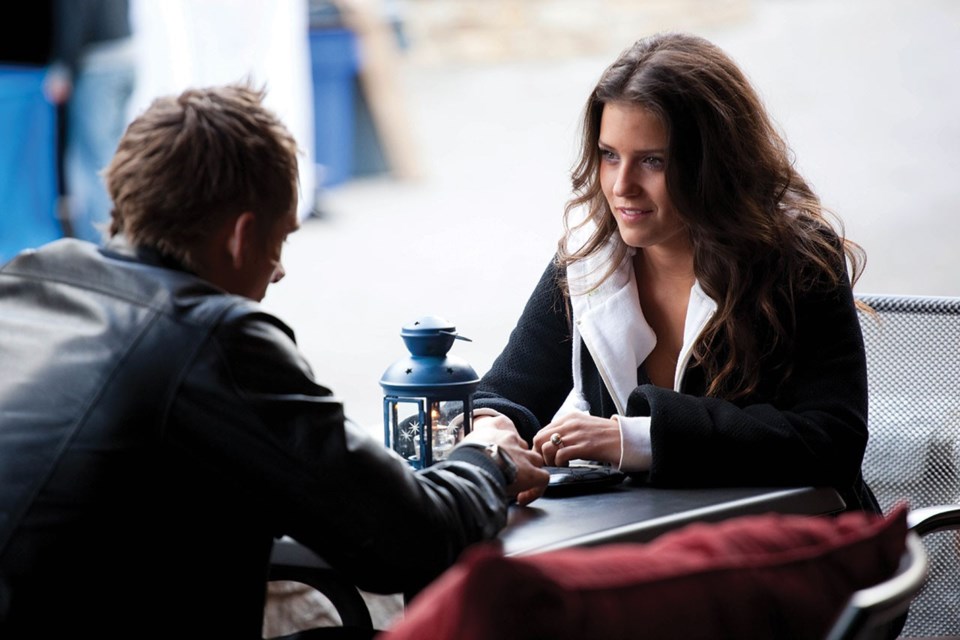
REALITY TV, IN REALITY
In Episode 2, there's a scene where a group of girls get dressed up in snowsuits, grab a server's tray, a giant, blow-up swan, and a GT Racer to toboggan on what appears to be the massive hill at the end of the Lorimer Road, in an old gravel pit.
Whistler looks like a winter wonderland—the backdrop to friends having a wholesome hangout (well, minus the beer and giant bottle of vodka). You could be forgiven for mistaking it for a Tourism Whistler ad campaign.
But Kortekaas—who served as both the voice of reason and party-girl sidekick to Horton throughout the season—remembers the day a little differently. "It's so funny what they chose to edit out," she says. "That day was so crazy. I got alcohol poisoning. They had to call my mom in Ontario I was so drunk. We were at the Longhorn and I was chugging out of my UGG boot."
(In case you're worried about present-day Kortekaas' wellbeing, she adds, "Now I'm coming home from Mommy and Me [parent play date groups]." She still likes to cut loose occasionally, but as a mom and wife, she's mostly left her wild ways behind her.)
Horton says her own portrayal on the show was, for the most part, accurate—even when it came to some less-than-flattering incidents. "I've always been that person—scrappy, outspoken, don't really give a shit," she says.
However, she admits some of her behaviour on the show (for example, the time she punched "Aussie Matt" during a night out at Cinnamon Bear), may have come off as "a little more extreme" than it was in reality. In that case, Horton says she decided to throw a fist after "hours of provoking" that she suspects was largely prompted by producers.
"It wasn't just me snapping," Horton remembers. "That was a very well-deserved punch—and it wasn't even a good punch!"
One trick of the trade came while filming a scene depicting snowboarder Just and her roommate, Jenelle Pritchard, getting ready to head to the bar. The only problem? Crews were only available during daylight hours that day. "So they blacked out all the curtains in the house to make it so no light was coming in ... It's like 1 p.m., but in the house, it looks like it's nighttime and we're pre-drinking," remembers Pritchard, who's one of a handful of Peak Season personalities who stuck around the Sea to Sky in the decade following the show.
During filming, the cast developed a strong connection with the crew, she adds. "You almost want to be putting on a show for them because you become friends with them ... You're just like, 'OK, whatever, I'll help you do your job.'"
While there was a disconnect between what the cast was experiencing behind the scenes and what the audience saw onscreen, it wasn't always as dramatic as you might imagine, given all the firsthand accounts we have now about the inner workings of reality TV.
"Obviously we would have to manage the production," says Fraggalosch, but the characters generated their own storylines. "You're not literally [just] following people around ... You do have to book locations and get crews in there and everything, so we would basically schedule it."
Producers could certainly pick and choose what made the final cut and, likewise, steer the direction of conversations, but it was more about accentuating and encouraging the existing drama—the same variety that still exists today every weekend on Village Stroll.
One example? Kortekaas and Horton both worked at the Amsterdam Café when the show started, but they weren't the BFFs the show made them out to be.
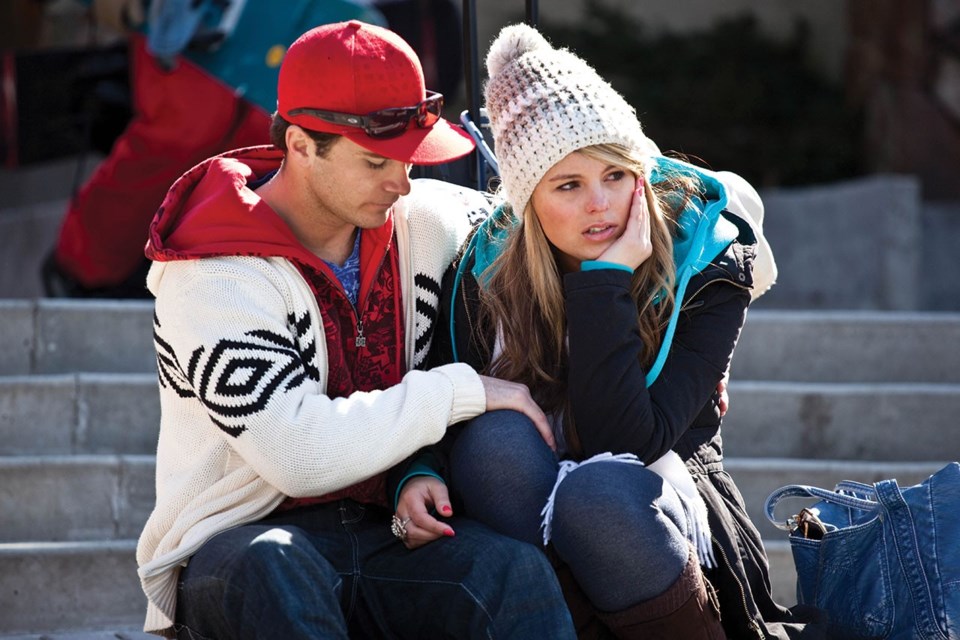
And the scene in which Horton was fired from her job? "I'd already been fired," says Horton with a laugh. "But they missed it, so I had to go back and be fired for a second time."
However, she says even her firing was slightly misconstrued—in actuality, it was more of a "mutual agreement" after filming for the show began taking up more and more of her time.
"I will say this about reality TV—it's not real," Kortekaas says. "It is real, but we had call times where we'd have to meet. You knew whom you were filming with and you'd arrive and they'd mic you up and set up the lighting and say when they were filming. We were ourselves on camera, but it took a little bit of getting used to."
To that end, Scheller was really a 21-year-old going through a heart-wrenching breakup when she first appeared on the show.
"I was going through some hard stuff," she says. "My boyfriend and I lived with [Morel], we were breaking up and he was moving out. It was very hard ... It was really sad re-watching myself go through all that. But it was also like, 'Oh my God, I can't believe they put that with that scene, it wasn't the same night.' They made me look a little crazy, but whatever."
Since producers wanted to fulfill different archetypes, Scheller was cast as the model even though she competed in snowboard contests alongside Just, the show's snowboarder.
"I'm not a model," she adds. "A lot of the filming they said, 'We need to revolve you around this.' It was very forced."
Meanwhile, Garnet Clare, born and raised in Whistler and part of the hip-hop duo Animal Nation, didn't have much issue with how he was depicted on the show. He was featured briefly on the season (and, ultimately, series) finale, talking to Morel about his girl troubles, all the while with a bit of a bewildered grin that says, "I don't really know what's happening, but I'm here for it."
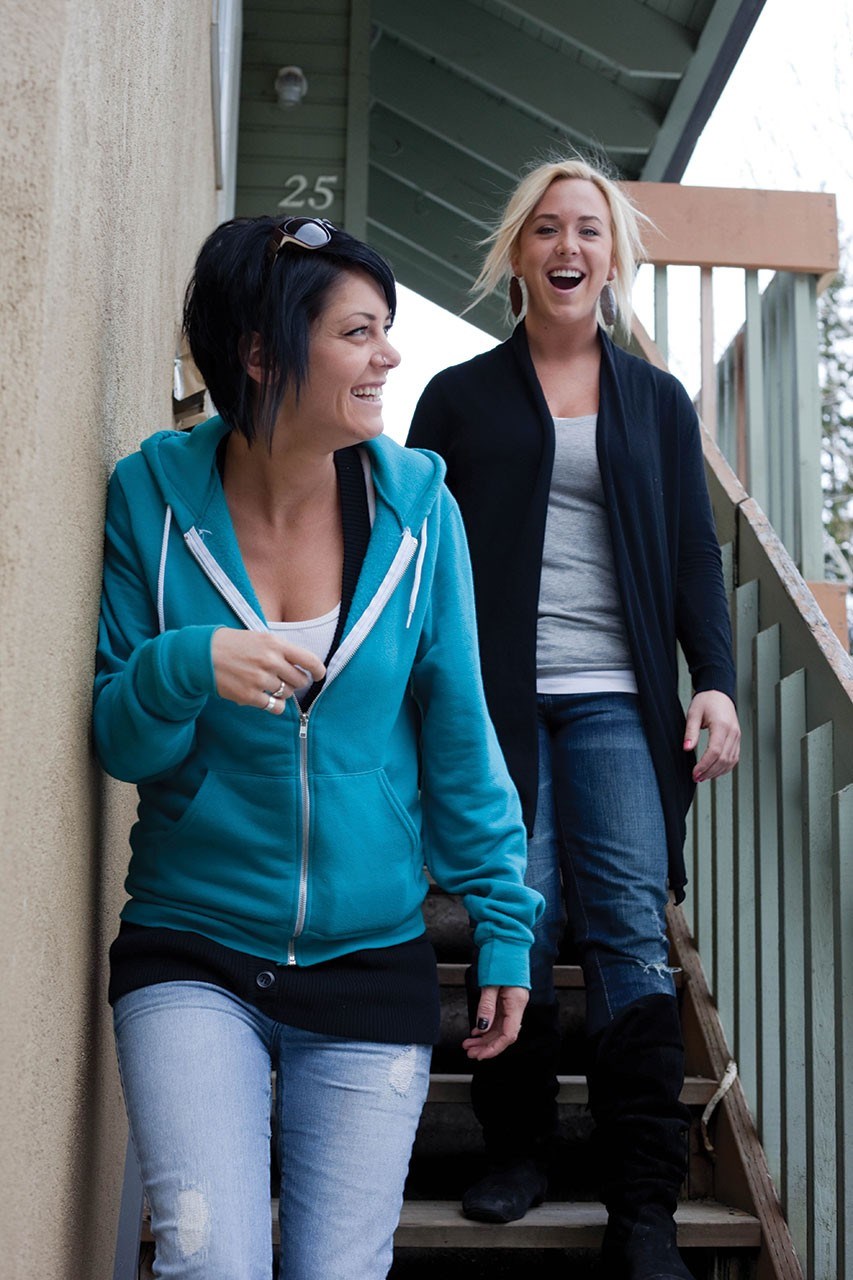
Not only did he have six or seven songs featured on the show—for which he and Mike Armitage still receive occasional residuals—but he's also the voice that opens up each episode, while Armitage did the voiceover for "Next time, on Peak Season..." at the end.
"We were brought down to Vancouver to a gorgeous studio and got paid way too much to do that," Clare says. "They had me do it a few times and they used the tone I don't normally speak with. That was my favourite part of the entire show."
For all the uncomfortable feelings and critiques of their experience, and reality TV in general, each cast member interviewed for this story (at least one person declined and several more never replied) said they would undoubtedly do it again if given the chance.
The reason? It was an insanely weird and unique experience they can now appreciate with a decade behind them and lives that have become markedly more mature.
"It was so crazy and I think I shaved a few years off my life," Kortekaas says, as much about the show as about her time in Whistler as a whole. "It was a great time and I wouldn't trade it for anything. It's hilarious I have this little snippet of what I did there."
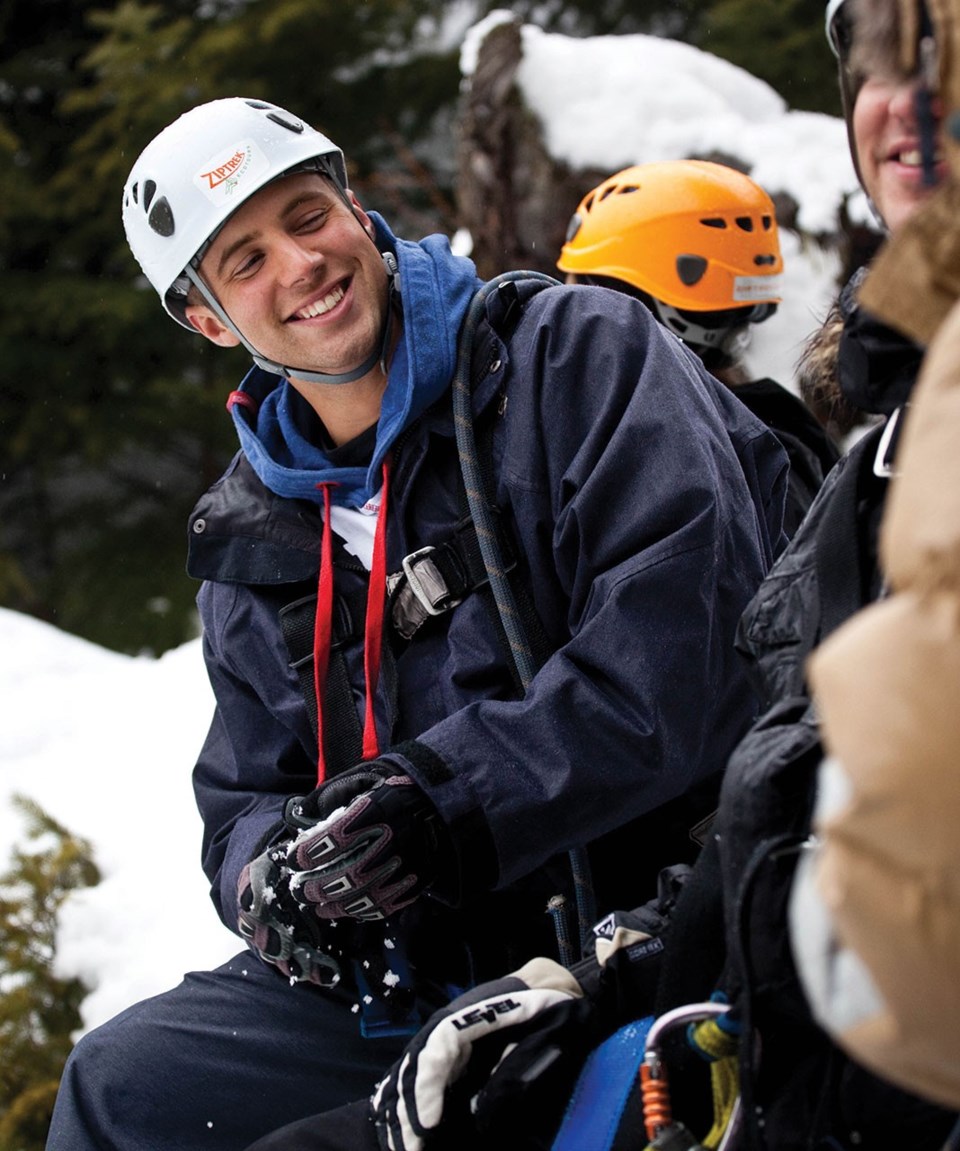
'WE GOT SHUNNED BY A LOT OF LOCALS'
Shortly after the first episode aired, Kortekaas was partying at Maxx Fish when a childhood friend approached her.
"He'd probably been [in Whistler] 10 to 15 years and he said, 'I can't believe you did that,'" she remembers. "A lot of people who lived in Whistler thought it was really lame. We got shunned by a lot of locals."
Perhaps in the context of 2009—when Whistler was just coming into the international spotlight leading up to the 2010 Olympics and exploding as a resort destination—their criticisms were, in part, a reaction to the changes already happening in town. But, as Kortekaas explains it, the cast was a bunch of kids in their early 20s who were offered money by MTV Canada to live their lives—only with a camera along to capture it.
This was on the cusp of reality TV's explosion and, paired with their young age, they had little idea of what exactly they were getting into, most cast members say.
"We didn't know reality TV," Kortekaas says. "We didn't have people to pick out our outfits and do our hair. Why am I wearing a man's XXL fleece plaid shirt and my red hoodie I always wore? I had the worst clothes and makeup! I cringe. I can't look at it."
Part of the negative reception also had to do with Peak Season coming on the heels of CTV's scripted drama Whistler, which aired for two seasons from 2006 to 2008, points out Clare. Gold medal Olympic snowboarder Ross Rebagliati filed a lawsuit against CTV that was settled out of court for misappropriating his identity with one of the fictional characters.
"Locals really didn't like [Whistler]," Clare says. "Because of that, any show that was coming to Whistler—especially reality-based—everyone hated it. Looking back, it's so innocent. It was supposed to be MTV Canada's biggest show—then Jersey Shore came out the next year and it was like, 'Why would we watch this tame show about Whistler?'"
The responses weren't all negative, though.
Says Fraggalosch: "I think there was a desire in the community up there to have Whistler presented in a real way, because it had previously been presented in some ways that, I think, rubbed the community the wrong way."
There were some people who were even starstruck after the first episodes aired—much to Kortekaas' shock at the time.
"On the other side, locals would come and bombard us and be like, 'Oh my God, you actually work here [at the Brewhouse]?' Can we have your autograph? I'd be like, 'Honestly, I'm not that cool. I'm wearing a nametag and serving beer.'"
MTV encouraged the cast members to get Twitter accounts—a relatively new platform at the time. They'd sometimes get messages inviting them out in town for free drinks.
"People thought we were celebrities and we were just normal people," Kortekaas says. "I had a weird feeling about it afterwards ... Lauren and I would go out in Vancouver and people would literally bombard us like we were Paris Hilton and Kim Kardashian."
Horton recalls one instance in a McDonald's on Granville Street where she had a group of girls "corner" her in the bathroom. "They were squealing at the top of their lungs, like 'Oh my god!' and taking my picture and smothering me. And I was like, 'What the fuck am I doing? This isn't what I want to be doing with my life.'"
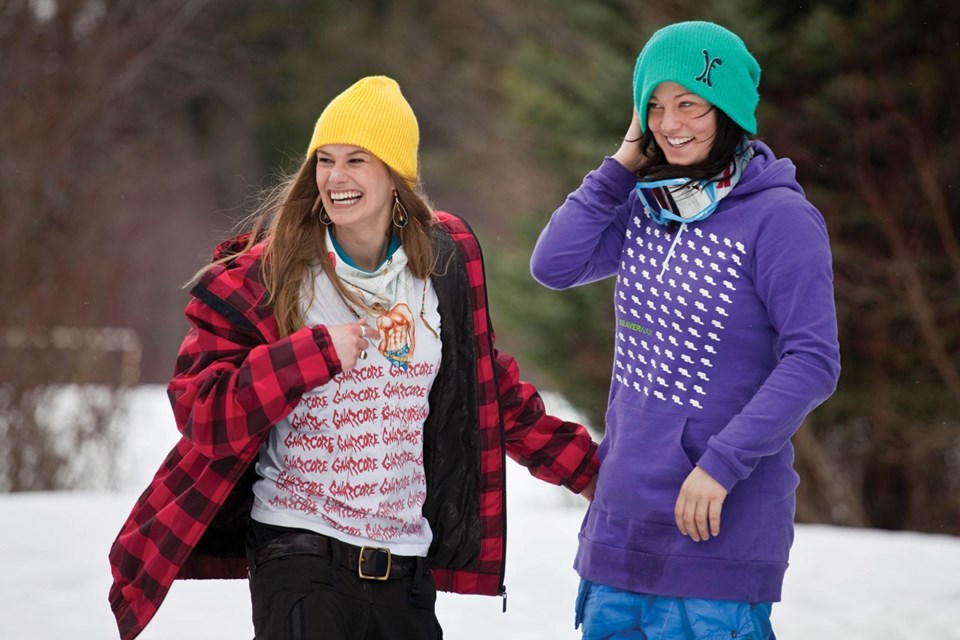
Scheller and her friends used to call it "getting Peaked."
"We'd be sitting at lunch or in front of a store and you could hear people whispering, 'That's so and so,'" she recalls. "It was weird. I hated that. You couldn't really be yourself without somebody coming up to you. It's Z-grade celebrity, but it's still really weird for that to happen."
A CHANGE OF SEASON
As it turns out, time hasn't completely quashed enthusiasm surrounding the series. Each cast member interviewed had stories about being recognized in far-flung places years after the show first hit airwaves—like the time a Peak Season fan approached Horton and her now-fiancé at a Seattle Mariners baseball game shortly after the couple began dating. "I was waiting in line to get drinks with him and this girl came up and started freaking out. It was the first time that he got see it firsthand, and he just thought it was the coolest thing ever," she says with a laugh.
Kortekaas thought she had left the show far behind when, five years ago, she was out for drinks with her coworkers from the wealth and estate planning firm she worked at in Downtown Toronto. She ran into a friend from high school who immediately said, "Oh my God, I haven't seen you since you were on that show!"
The cat was out of the bag. "My coworkers bought it on iTunes and everyone watched it," she says. "I watched the first episode with them and I was like, 'No, I can't.'"
But she says she would consider watching it some day with her husband (who has never seen it) and her son, when he's older.
"It's pretty funny thinking about it now," she says. "We were so serious about it back then. Like, 'Oh my gosh, are they going to do Season 2?' ... It's such a cool part of my life that not a lot of people get to experience. It was a pretty big production and aired in a lot of different countries. I just think it was a really fun experience. That's the best way I could put it."
Ten years later, Fraggalosch looks back fondly on his first foray into the world of TV. "There's nothing obvious that I regret doing, or think was a mistake—I guess I just wish we could have kept doing it."
In terms of international attention, "The Olympics were a real blessing to us, but then I think it was a roadblock to getting anything filmed in 2010," Fraggalosch says.
But by the time 2011 came around, "the moment for the show had passed. It definitely still feels like it has a legacy. I get asked about that show a lot."
While the cast was paid for appearing on the show, "it was pennies," Horton says.
After Peak Season aired, she, along with cast-mates Morel and Ross, took up a friend's offer to serve as their manager and help the trio capitalize on the series' success.
"I can't speak for the rest of the cast, but Dre, Ian and I made all our money after the show, doing appearances and interviews ... We went to bars and nightclubs and record stores and signed autographs and pictures and, you know, went to MTV a couple times," says Horton, who now lives in Mexico with her fiancé and one-month-old son. "It was super cool. I can definitely say that I've done something that not a lot of people in their life have done."
Horton still has copies of the show on both DVD and VHS tapes (remember those?). While she says she won't be the one to introduce her son to the series, "I can guarantee you when he's old enough, [my fiancé] will," she laughs. "He'll be showing this show to our great-grandchildren. I can guarantee you! At almost every single family function, somebody brings it up."
To Fraggalosch, Peak Season will always be an example of Canada proving it could hold its own against an American product, as a new genre of television rose to prominence.
"It was certainly the first show in Canada made like that," he said. "I think within the industry here, it was a bit of a pioneer for sure."
'A LOVE LETTER TO WHISTLER'
Even if you hated the way Peak Season portrayed Whistler, you have to admit, the final episode neatly captures the tangible shift of seasons the resort experiences every year.
The camera pans around the village capturing telltale spring rain, the chaos of the World Ski and Snowboard Festival during its heyday, and seasonal residents reluctantly packing up, poignantly enjoying their final Whistler beer.
While the cast and crew didn't know at the time that it would serve as the series finale, it's a fitting end to the show, which ultimately offers—however accurate or flawed—a capsule of one season in the resort.
Other reality shows would come—including the similarly locally-maligned Après Ski and its follow-up Timber Creek Lodge, also for one season each—but locals' reactions to Peak Season in particular seems to have softened over time. For better or worse, many who moved to Whistler after it aired can recall how it shaped their vision of what life in the mountain town would be. With the overproduced and often heavily scripted reality shows of today, it also seems positively quaint by comparison.
A few memorable, choice lines from the series that probably wouldn't fly today show just how far we've come as a community and wider society. In particular, "In Whistler, it's not your girl, it's just your turn," or "I kind of relate city girls to a container of milk. When you buy it, you look at the expiry date, like shit, that goes bad in three days. You better fucking get on that before it expires."
"Would I put that in a show now?," Fraggalosch muses. "I mean, I have no idea—it's hard to imagine anybody necessarily saying something like that now ... It certainly wouldn't surprise me, particularly with that age group of characters, that things were said I'm sure they would not be saying anymore, or kids their age these days would not say.
"It reflects a certain time."
In the end, though, the one thing cast members agree the show got right was its visual portrayal of the resort.
"Visually, the show was beautiful," Clare says. "I haven't watched it in a long time, but I remember it looking really good. It made Village Stroll look gorgeous."
That was intentional. Despite all the drama it captured, Fraggalosch calls Peak Season, "a love letter to Whistler."
"In this time period, during peak season, people from all over the world are thrown together—you have a new job, you have new friends, you have a new place to live—everything's kind of new and exciting and disruptive and yet new lives and relationships are starting," he says. "And, all of this is happening in this incredible resort that's arguably the best ski resort in the world. I thought, with that as a backdrop, it could be a really interesting way to look into these people's lives."



